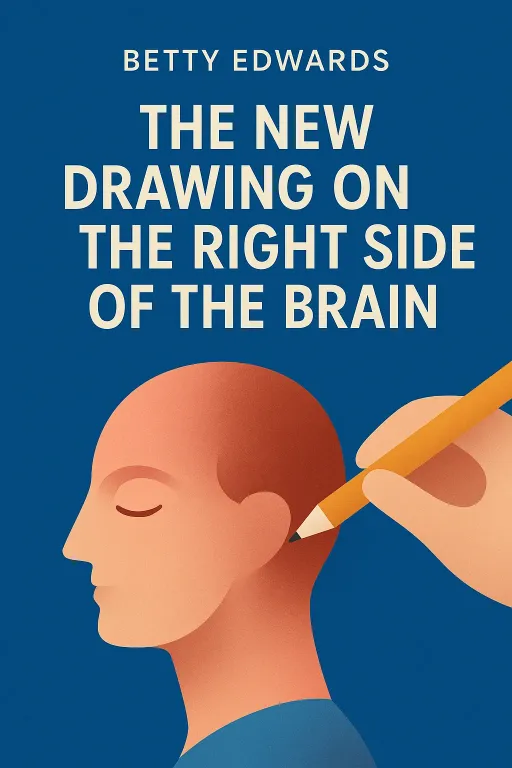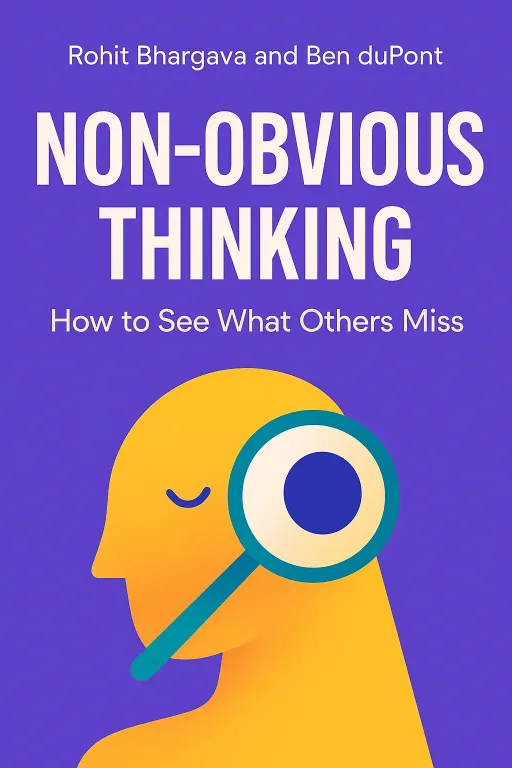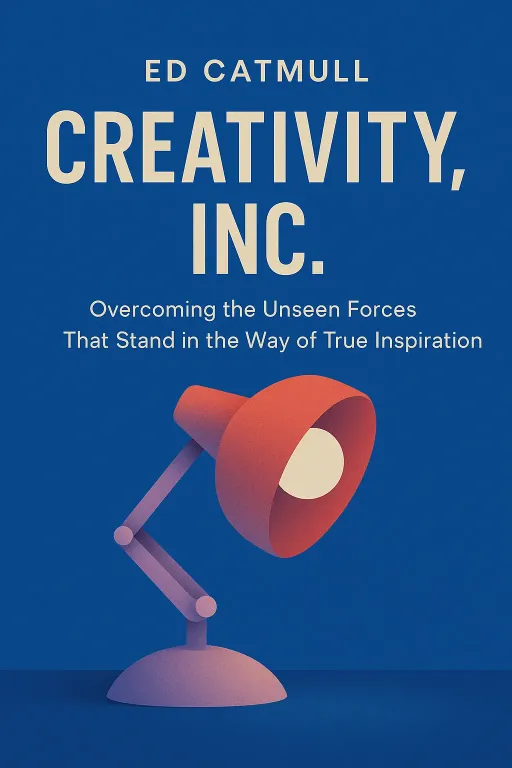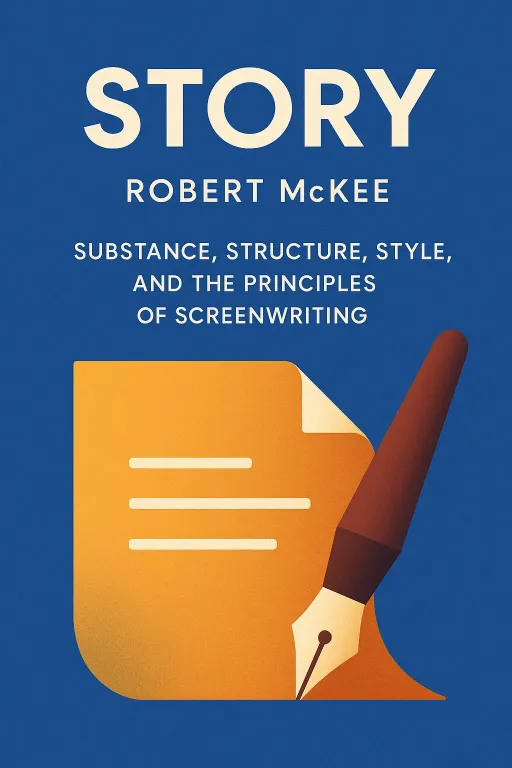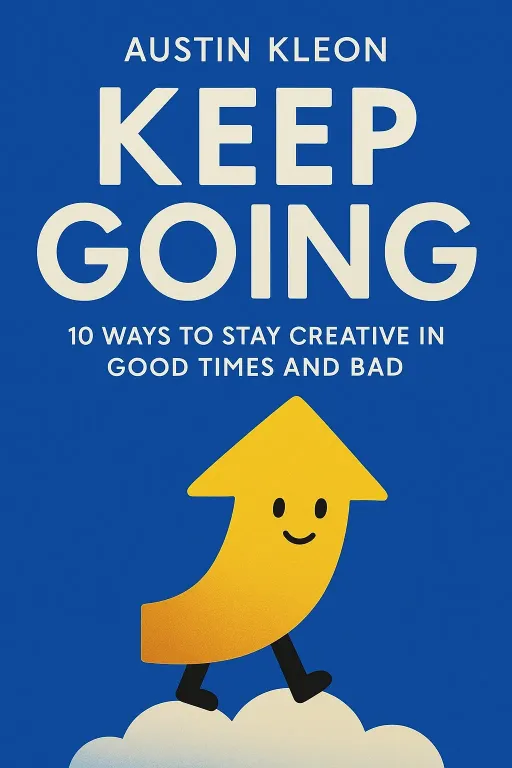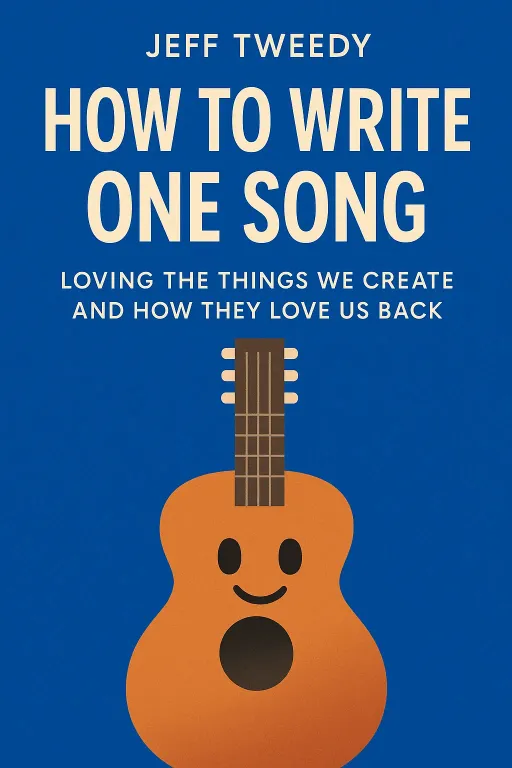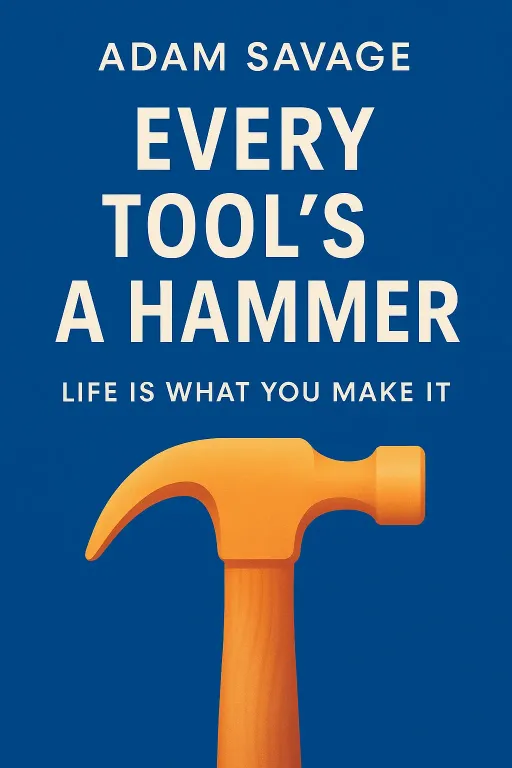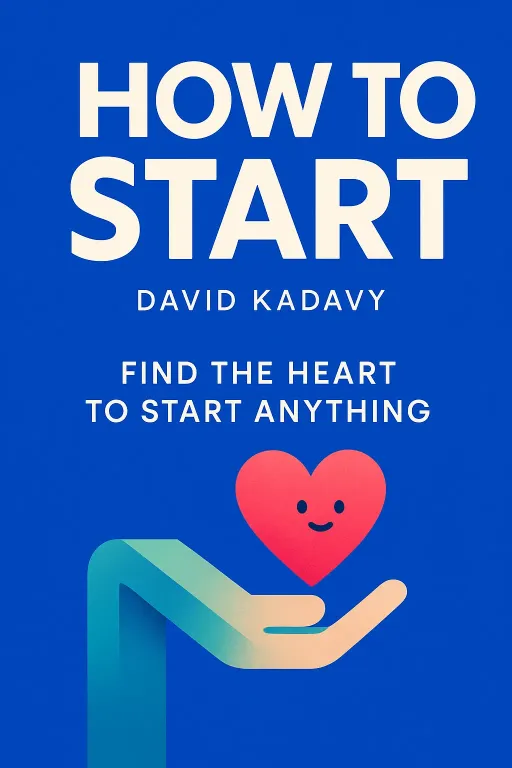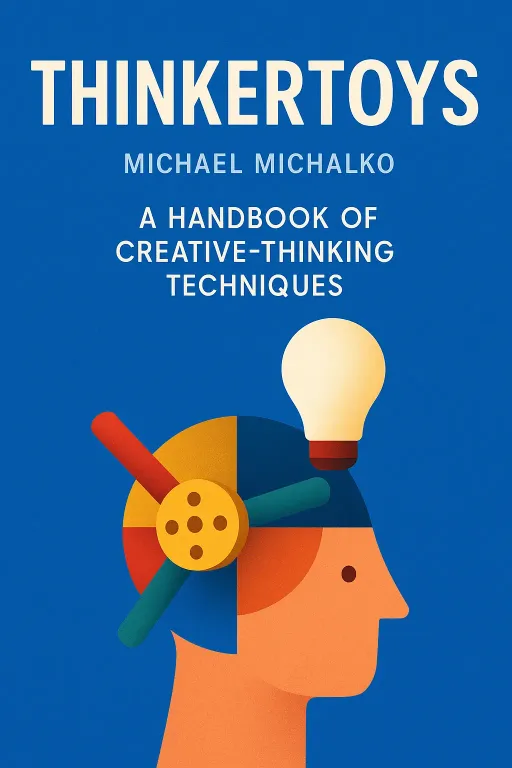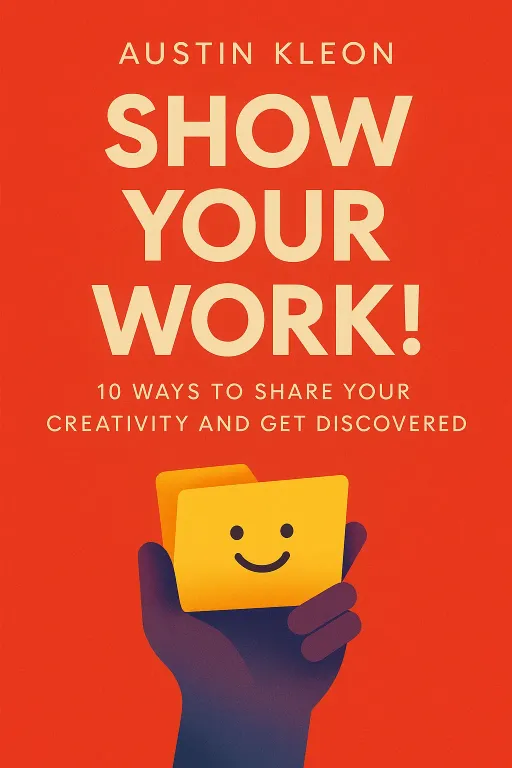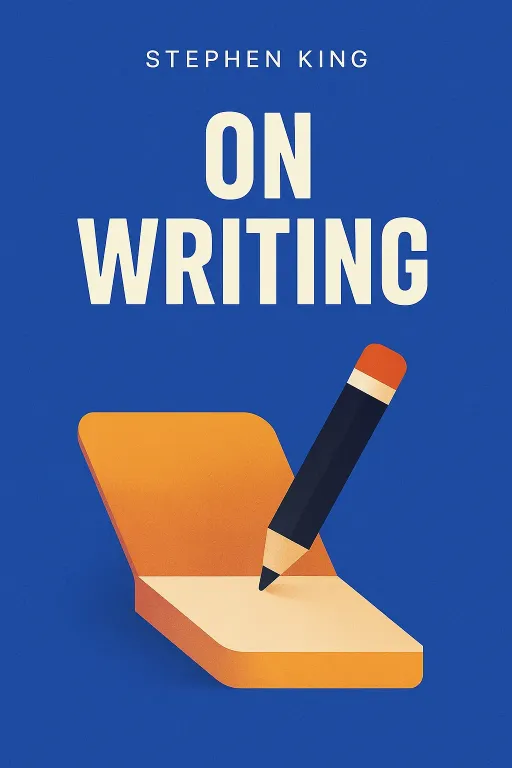
The Writer's Life: Deconstructing Stephen King's Blueprint for Creativity
9 minGolden Hook & Introduction
SECTION
Nova: What if I told you that the master of horror, the man who gave us terrifying clowns and haunted hotels, wrote one of the most profound and uplifting books about life itself? Stephen King's 'On Writing' isn't just for writers. It's a blueprint for anyone with a creative spark, and it starts with a surprising idea: that great work isn't born from some mystical gift, but from something much more grounded, something you might find in your grandfather's garage.
会: That’s a fascinating premise, Nova. It immediately challenges the romantic notion of the tortured artist.
Nova: It really does! And that’s exactly what we’re going to dig into. I’m Nova, and I’m so thrilled to be here with 会, whose own creative spirit and love for diving deep into new ideas makes them the perfect partner for this journey. Welcome, 会.
会: It’s a pleasure to be here. I’m always curious about the minds behind great work, so this is a real treat.
Nova: Fantastic. Today, we're going to deconstruct that blueprint from two powerful perspectives. First, we'll open up King's famous 'Creator's Toolbox' and see how discipline and craft are the true keys to creativity. Then, we'll explore his most personal and hard-won lesson: how to ensure our passions serve our life, and not the other way around, a lesson forged through addiction and a near-fatal accident.
Deep Dive into Core Topic 1: The Creator's Toolbox
SECTION
Nova: So, let's start with that first big idea, the 'Creator's Toolbox.' 会, when you think of a creative genius like Stephen King, what's the first image that comes to mind? Is it a chaotic artist, papers flying everywhere, waiting for inspiration to strike? Or something else?
会: You know, I think the default image for many of us is exactly that—the chaotic genius. We imagine inspiration as a lightning bolt. The idea of a 'toolbox' suggests something far more deliberate, more… structured. It’s almost a blue-collar approach to a white-collar, or perhaps no-collar, profession.
Nova: That is the perfect way to put it! A blue-collar approach. King would love that. He builds this entire philosophy around a memory from his childhood. He remembers his uncle, Oren, who was a carpenter. One day, Oren had to fix a single, small broken screen on a house. And he lugs this enormous, heavy, handmade wooden toolbox all the way to the other side of the house for this one tiny job.
会: Which seems like overkill.
Nova: Exactly! A young Stephen King asks him, "Why did you bring the whole toolbox when all you need is a screwdriver?" And his uncle, without missing a beat, says, "Yeah, but Stevie… it's best to have all your tools with you. If you don't, you're apt to find something you didn't expect and get discouraged."
会: Ah, that’s the core of it. It’s about preparation. It’s about anticipating the unexpected.
Nova: Precisely. For King, writing, or any creative act, is the same. You don't wait for the muse; you build your toolbox so you're ready when an idea arrives. And his tools are surprisingly simple. The top layer of the toolbox, he says, is vocabulary. But he’s not about using big, fancy words. His rule is to use the first word that comes to your mind, if it’s appropriate and colorful. Don't dress up your language.
会: Be direct. Be clear.
Nova: Yes! And the layer below that is grammar. He says it’s not about being a perfectionist, but you have to know the rules to communicate effectively. It’s the framework of the house you’re building. And then, a key tool for him is style, which he boils down to a simple rule from Strunk and White’s The Elements of Style: "Omit needless words." Be concise.
会: That toolbox metaphor is incredibly powerful because it demystifies the creative process. It reframes it from an act of divine intervention to an act of disciplined craftsmanship. It makes me think of how a historian approaches an archive. You don't just wander in hoping to find a story. You arrive with your 'toolbox'—your knowledge of the period, your methods for analyzing primary sources, your critical questions. The discovery, the 'magic,' happens when you apply those tools to the material.
Nova: I love that parallel. It makes creativity feel so much more accessible, doesn't it? It’s not something you’re born with or without. It’s a set of skills you can actively develop. You can choose to build your own toolbox.
会: Exactly. There's a profound sense of agency in that. It suggests that anyone, in any field, can become a better craftsman if they are intentional about identifying and sharpening their tools. It’s not about waiting to feel creative; it’s about doing the work that allows creativity to emerge.
Nova: It’s so empowering. But this is where King adds a crucial, and much more personal, warning. Once you've built this amazing toolbox and your craft is thriving, the danger is letting it take over your entire life.
Deep Dive into Core Topic 2: Art in Service of Life
SECTION
Nova: And that naturally leads us to his most profound lesson, which is really the heart of the book for me. He says, "Life isn't a support-system for art. It's the other way around."
会: That’s a statement that stops you in your tracks. It runs counter to so many narratives we hear about great artists, where life, family, and health are all sacrificed on the altar of their work.
Nova: It absolutely does. And for King, this wasn't an abstract philosophical idea. It was a lesson he learned in the most brutal, personal way. For much of his early success, from the late 70s into the mid-80s, he was a functioning alcoholic and drug addict. He tells this story… he was so deep in denial that he was convinced he needed it to write.
会: The Hemingway defense, as he calls it. The myth that substances are the key to unlocking creativity.
Nova: Yes. But his family saw the truth. His wife, Tabitha, finally reached a breaking point. She gathered a few family and friends, and she staged an intervention. She took a trash bag filled with all the evidence of his addictions—beer cans, cocaine vials, Xanax, Valium—and dumped it all out on the rug in front of him.
会: What a powerful, terrifying moment.
Nova: Can you imagine? And in that moment, faced with losing everything, he had to make a choice. And this is what he wrote about it, and it gives me chills every time. He said, "I was afraid that I wouldn’t be able to work anymore if I quit drinking and drugging, but I decided… that I would trade writing for staying married and watching the kids grow up. If it came to that."
会: Wow. That is the ultimate test of priorities. He was willing to give up the very thing that defined him, his entire public identity and livelihood, for his life. For his family. What he’s arguing for is a kind of sustainable creativity, one that doesn't demand you burn down your own house for fuel.
Nova: A sustainable creativity. That’s beautiful. He chose life over the perceived needs of his art. And of course, he discovered he could write even better without the addiction. But that lesson was tested again, even more violently, in 1999. He was out for a walk on a country road in Maine when a distracted driver in a van ran him off the road, hitting him and leaving him for dead in a ditch. His injuries were catastrophic.
会: I remember when that happened. It was horrific.
Nova: His leg was shattered in nine places, his hip was broken, his lung was collapsed, his scalp was lacerated. The doctors weren't sure he'd walk again, let alone write. And during his long, agonizing recovery, writing wasn't some grand artistic calling. It became therapy. It was a way to reclaim a piece of himself. He says writing became about "getting up, getting well, and getting over." It was a tool that served his recovery. It served his life.
会: So in both cases, with addiction and the accident, the hierarchy became crystal clear. His craft was there to enrich his life, to help him heal, to connect him to his family—not the other way around. It’s a lesson that I think resonates more and more as one gets older. You begin to see that the work is part of the journey, but it isn't the entire destination.
Synthesis & Takeaways
SECTION
Nova: It really isn't. And that’s the beautiful balance he strikes in this book. So, as we bring this all together, we have these two powerful, complementary ideas. On one hand, there's the call to action: be a serious craftsman. Be disciplined. Build your toolbox and treat your passion with respect.
会: And on the other hand, there's the profound wisdom to keep that craft in its proper place. To see it as a source of joy and enrichment that adds to your life, rather than a demanding master that consumes it. It’s the balance between ambition and perspective.
Nova: Perfectly said. It’s a philosophy that applies to anything we're passionate about, whether it's writing, studying history, gardening, or building a business. It’s a blueprint for a fulfilling, creative life.
会: A life where joy is the primary motivation. He says he wrote for "the buzz," for the "pure joy of the thing." The success was just a byproduct.
Nova: Yes! And that brings us to the end. King closes the book with this incredible, open-hearted invitation, and it feels like the perfect place for us to end, too. He says, "Writing is magic, as much the water of life as any other creative art. The water is free. So drink. Drink and be filled up."
会: A beautiful sentiment.
Nova: It really is. So, for everyone listening, our question to you is this: what is your 'water of life,' that thing you do for the pure joy of it? And are you drinking from it? Thank you so much for joining me on this journey, 会.
会: Thank you, Nova. It was a wonderful conversation.
